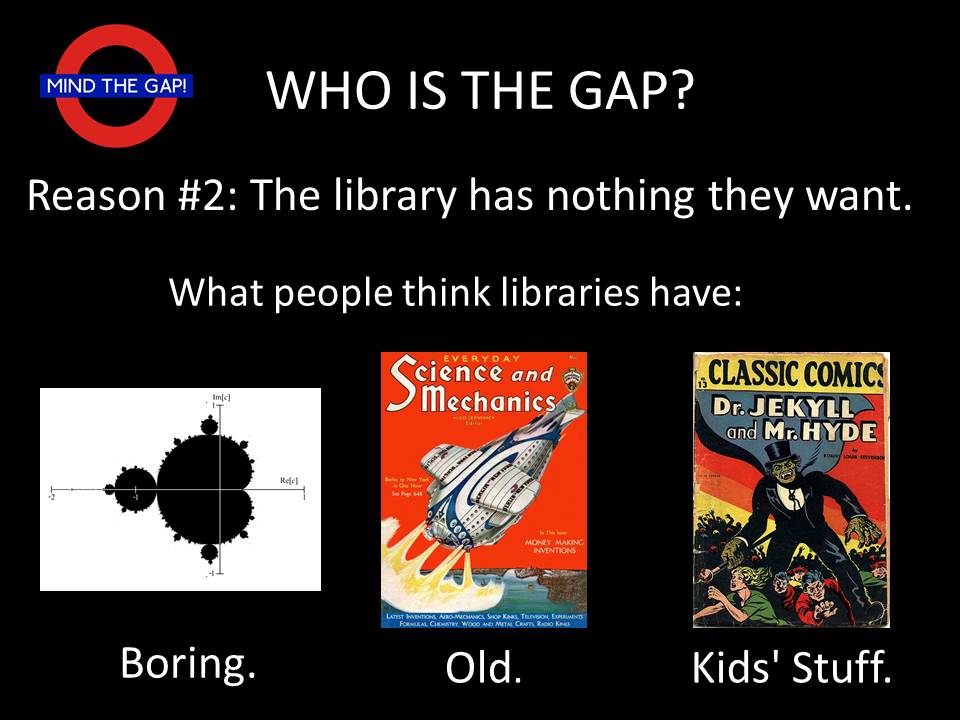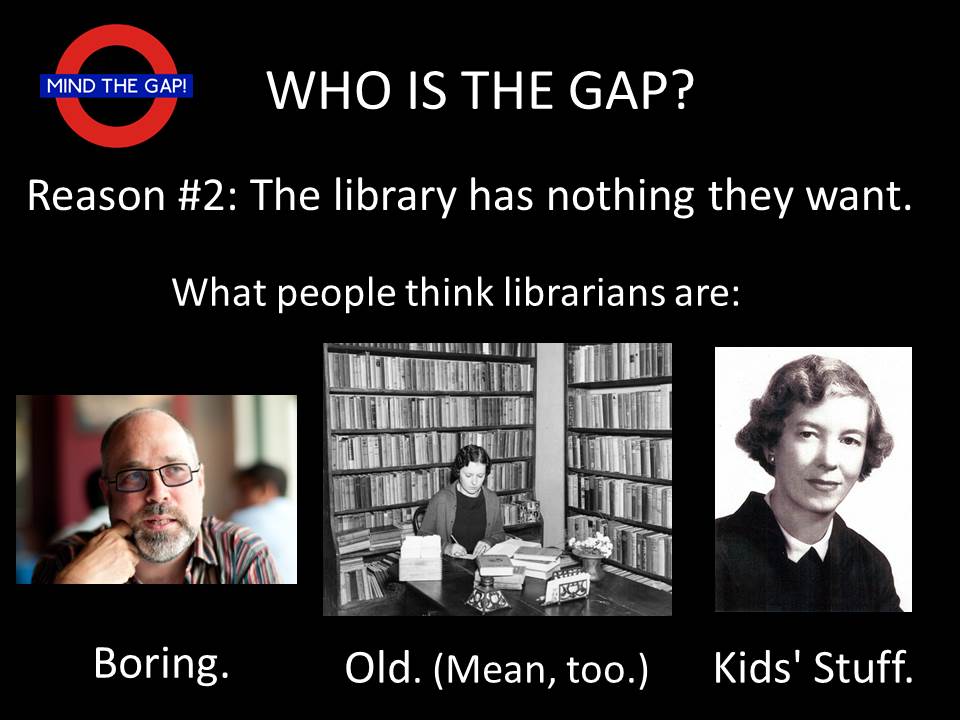

Another issue with public libraries is that they're suffering from a perception that suggests they are institutions of the last century rather than the current one. Public libraries are strongly associated with physical objects, mostly books, many of them old, required for school assignments, or otherwise suited for families with young children that are just learning to read. This is something that libraries continue to aggressively market - a place for families to get books that would otherwise be prohibitively expensive and to do programming that relates to learning to read and experiencing text in its many ways. Also, a place to get materials that one needs for school assignments, and during the summer, a place for pleasure reading to keep up the skills.
Adults have their stories of the library - many of them relating to boring school work, college papers, and possibly the Shushing Librarian or other mean staffers who made the public library an unwelcome place for them during their teen years and the formative stages where library love is supposed to be inculcated. Other adults see the library as a place for those who can't afford basic things like cable, Internet access, or other entertainment options, those who need to find work, and those who can't afford to buy the books for their homes that otherwise they would have. Many of those people rediscover the virtues of the public library when crisis hits and there are layoffs, economic downturns, and other things that adjust the amount of disposable income available to adults. Public libraries shouldn't need an economic disaster to get an increase in the use of their services, and the effect brought on by economics is often temporary, anyway. Once the disposable income amounts increase, the people who weren't coming go back to not coming.
This perception of nothing that people want, much like the reason of not being able to come to the public library, persists unless actively changed. Those that are there (or that work at the public library) may be able to point to all sorts of things inside the library building or on the website that would be great for the needs of the people around them. Allof those resources, however, are for nothing if that person never comes in the door or visits the website. Many of the members of The Gap aren't going to come or visit without some form of intervention that puts the public library on their radar. Even if there's the [CULTURALLY RELEVANT BODICE-RIPPER], or the [HOT TV SHOW], or free computer access, or any of the other services and programs that libraries offer in their buildings.